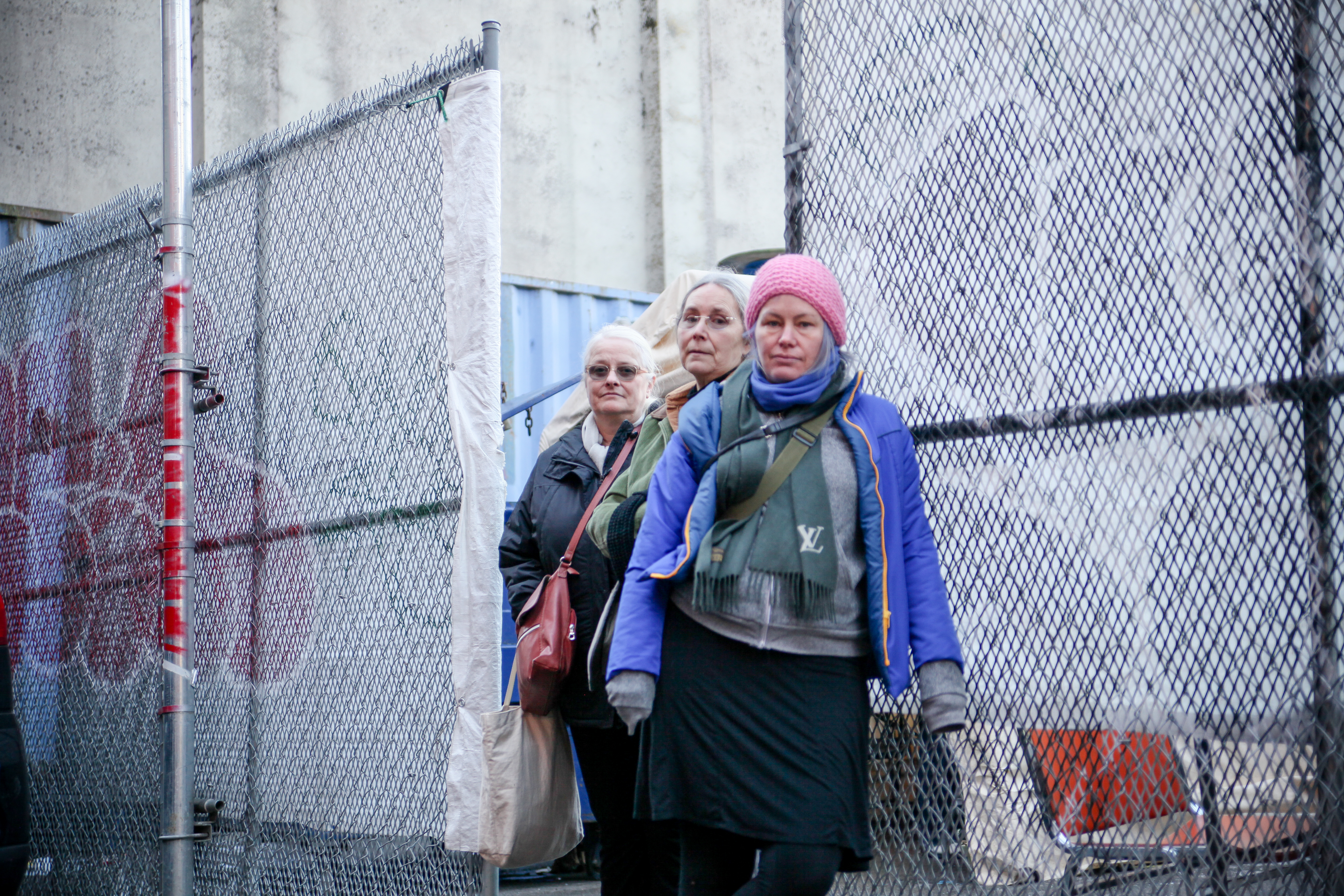“People doing drugs now are dope-sick and it’s so painful, you’d rather die.” — Constance Barnes, Overdose Prevention Society
The day you read this column, four people in British Columbia will die of a drug overdose, two-thirds due to the powerful opioid fentanyl.
That means 1,500 people will die in just one year. It’s the equivalent of four jumbo jets loaded with passengers crashing at Vancouver International Airport in 12 months — unthinkable.
Yet many people ask: why would anyone in their right mind play Russian roulette with their life by taking cocaine, ecstasy or heroin that could be laced with deadly fentanyl?
And that’s exactly the problem, Constance Barnes of Vancouver’s Overdose Prevention Society said in an interview Sunday.
“When you’ve been on drugs for months or years, you’re not thinking clearly,” says Barnes. “If you’re dope-sick and hurting and someone comes along with drugs and says there might be fentanyl in it — they’re still going to take it.”
“You can’t just stop — addicts have a thinking problem,” said Barnes, who herself has been in recovery from alcohol addiction for eight years after the former Vancouver Park Board commissioner had a highly publicized car crash while under the influence in 2009.
So Barnes can relate to the up to 700 people who daily use pop-up safe drug consumption sites, where they can inject, smoke or ingest drugs with medically trained volunteers watching to prevent overdoses.
“This is an absolute disease, as if you were diagnosed with cancer,” she says. And it is a dis-ease — it’s very much feeling uncomfortable in your own skin.”
Barnes says many people using drugs have schizophrenia or other mental illnesses, or have experienced enormous psychological pain.
“There isn’t anybody out there using drugs who wasn’t abused, a victim of incest, raped, uncomfortable for some reason,” she said. “Heroin will just numb it. You mask it.”
“That first time you have that puff of a joint or glass of alcohol, all of a sudden you feel comfortable, that you can take on anything,” Barnes said. “It’s not even that you’re getting high or stoned — you’re just getting normal.”
Overdose Prevention Society founder Sarah Blyth, also a former Park Board commissioner, is frustrated there isn’t more public reaction and demand for services to help the addicted.
“Everybody knows someone who’s died now,” Blyth said in an interview Sunday. “But it’s not hitting home the way it should because of the stigma.”
Blyth said the cost of dealing with fentanyl overdoses is far more than the cure.
“Having this crisis happen every single day is way more expensive: ambulances full, emergency rooms full, morgues full,” she says.
“People are addicted to fentanyl now — it’s worse than heroin — it’s like crack versus cocaine. This addiction is very hard on the body,” Blyth said.
Blyth, who has been honoured for her life-saving work by St. Paul’s Hospital, says she strongly supports B.C. New Democratic Party premier-designate John Horgan’s promise to created a stand-alone Ministry for Mental Health and Addiction to help deal with the fentanyl crisis.
“Ideally we’re not watching 700 people a day using drugs — they need help. Some are schizophrenics, some have mental health problems or other issues,” Blyth said.
Both the federal Liberal and outgoing BC Liberal provincial government have taken what Blyth calls some “bold steps” in opening up overdose prevention sites, but much more remains to be done to end the crisis.
“We need to expand the Crosstown Clinic immediately,” says Blyth, referring to the Downtown Eastside clinic run by Providence Health Care with federal approval that provides prescription heroin to addicts — a way of ensuring they don’t accidentally ingest fentanyl-laced street drugs.
Others are more critical of the BC Liberal government, with Vancouver Mayor Gregor Robertson blasting its inaction.
“In the 14 months since being declared a public health emergency, the B.C. government has failed to make a clear commitment to halt the fentanyl crisis and save hundreds of people from preventable drug overdose deaths,” Robertson said in June.
“We need a provincial government with a bold, tenacious approach and the courage to dramatically improve prevention, education and addictions treatment, with dedicated resources into opioid substitution therapy, treatment on demand, and other essential services for everyone who needs it, when they need it,” he said.
Horgan and his new minister for mental health and addiction will have their hands full, because the fentanyl epidemic is not limited to long-term drug addicts.
Barnes warns that many recreational drug users are unknowingly buying a fatal dose of fentanyl in their cocaine or ecstasy and aren’t injecting drugs.
“People who are doing coke these days are playing with their lives,” Barnes said. “There’s also a lot more smoking going on than injections.”
One the biggest parts of the problem is lack of public reaction to the crisis, Barnes says, because too many people believe drug addiction is simply a personal decision when “it’s a disease, not a choice.”
The decision that is costing lives isn’t made by those addicted to drugs — it’s the choice of those who don’t bother to care or help. ![]()
Read more: Health, BC Politics
















Tyee Commenting Guidelines
Comments that violate guidelines risk being deleted, and violations may result in a temporary or permanent user ban. Maintain the spirit of good conversation to stay in the discussion.
*Please note The Tyee is not a forum for spreading misinformation about COVID-19, denying its existence or minimizing its risk to public health.
Do:
Do not: